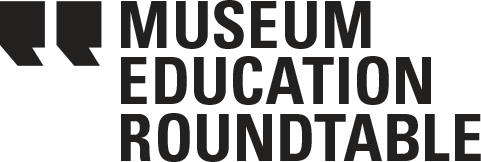Submit to the JME!
The Journal of Museum Education (JME) is the premier peer-reviewed publication exploring and reporting on theory, training, and practice in the museum education field.
Journal articles—written by museum education practitioners and scholars—explore such relevant topics as museum-related learning theory, visitor engagement and community involvement, evaluation, teaching strategies for art, science, and history museums, and the responsibilities of museums as public institutions.
This page is a hub for all Journal of Museum Education issues that are currently seeking article ideas and proposals. To learn more about each call, deadlines, and how to submit, please click the button for the issue you are interested in below.
book
Guest Editors: Amelia Smith and Margaret Middleton
Submission Deadline: midnight on October 15, 2025.
This special issue will put a variety of perspectives from transgender museum professionals in conversation with one another to discuss what it means to approach museum work with trans methodologies.
As trans museum professionals, we the guest editors have been pleased to see more trans-authored works coming out of museum studies departments. While this is exciting for the future of the field, we have noted that there remains a gulf between the theory discussed in dissertations and the practice conducted within museum walls.Trans perspectives in museum journals, edited volumes, and resources are often only given mention within a larger queer museum theory context, treated as external to the museum (a focus on visitors and “communities”), or discussed within DEAI through the lens of employee support, mostly focused on transition. This special edition seeks to bridge this gap by inviting a variety of trans museum professionals to offer the insights they have gleaned in their careers and their visions for the future of museum practice. We welcome challenges, critiques, provocations, and confrontations.
book
Guest Editor: Asami Robledo-Allen Yamamoto
Submission Deadline: 5pm ET Friday, October 31, 2025
In North America, museums have historically offered predominantly monolingual (English-only) experiences—across websites, programs, interpretive labels, and more. In many other parts of the world, particularly in regions of rich linguistic diversity, multilingual engagement is an established norm, deeply embedded in the way museums connect with their audiences.
This issue will explore how museums globally are implementing multilingual approaches in education, interpretation, and institutional culture. We will highlight innovative practices, assess the impact of linguistic diversity on audience engagement and belonging, and consider how multilingualism aligns with broader DEAI (Diversity, Equity, Accessibility, Inclusion) goals.
We invite articles that showcase both theoretical perspectives and practical applications, from large-scale multilingual access programs to subtle everyday practices of code-switching, translanguaging, and the use of minoritized languages in museum spaces.

